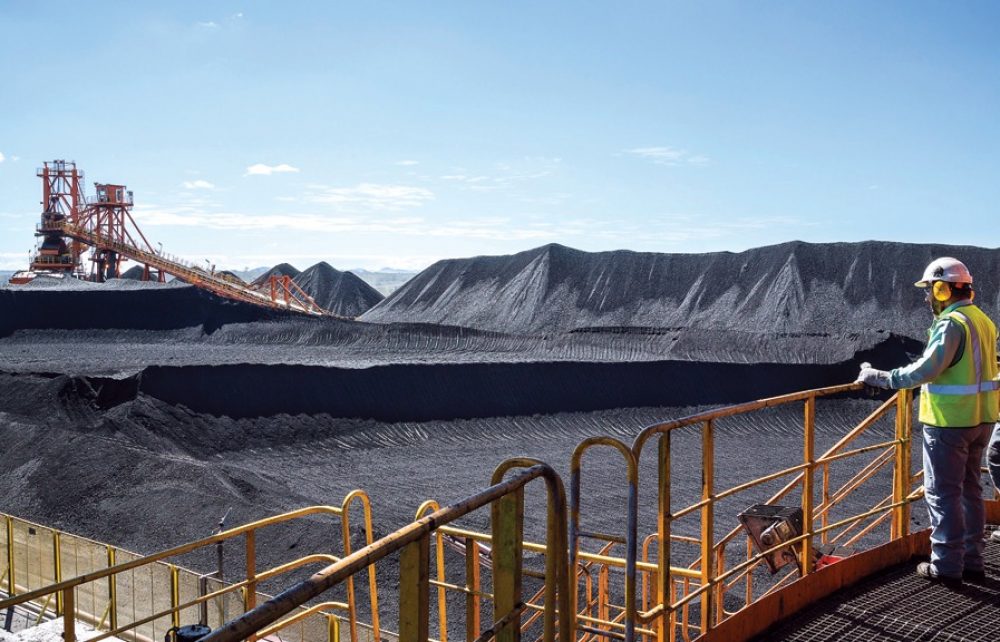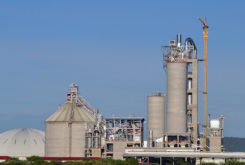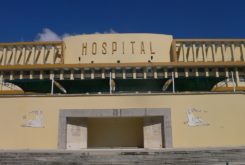The Mozambican economy has continued to lose steam during the year, owing to the fall in commodities prices in international markets. Conflicts in the north of the country are also weighing heavily on business activity, bringing up inflation, an effect that is expected to carry into 2020.
Third-quarter data from the National Statistics Institute, the most recent, on Mozambique’s GDP shows a deceleration to 2.0 per cent, 0.3 percentage points below the second quarter and 0.5 percentage points below the first quarter.
According to the same source, the primary sector, the country’s largest, saw a decrease in activity of -0.37 per cent, with growth in the Agriculture, Livestock, Hunting, Forestry and Related Activities (0.97%) outweighed by decreases in the Mining and Quarrying Industry (-3.7%) and Fishing (-2.2%).
These falls offset the performance of the tertiary sector, which grew by 2.85 per cent, with emphasis on the Transportation, Storage, Information and Communications sectors (5.8 %) and Real Estate Rental and Business Services (4.1%). The secondary sector had a growth of 2.28 per cent, driven by Electricity, Gas and Water (3.7%) and Construction (2.6%), followed by Manufacturing Industry (1.3%).
Although the World Economic Outlook (October 2019) presented a downward revision of the global growth projections, sub-Saharan Africa held steady for 2020 relative to the July 2019 projections. Mozambique’s projected GDP growth, expected to accelerate to around 6 per cent in 2020, remained unchanged and outpaces growth in the region, projected at 3.6 per cent.
Such estimates do not, however, account for more recent developments on the ground. Owing to “technical issues,” in late November, Brazilian coal mining company Vale announced a three-month production stoppage is planned for 2020.
This a significant blow to the economy: coal is the country’s largest export, totalling US$1.7 billion in 2018, with Vale operations accounting for nearly all of that. Bloomberg estimates the stoppage will cut out about one-third of Mozambique’s export earnings.
Another part of the energy sector saw positive progress in the third quarter: On 8 October, the Rovuma Joint Venture (ExxonMobil, Eni, CNPC, Galp, ENH and Kogas) announced their initial investment decision in the Area 4 project. The final investment decision will come in 2020, an Exxon spokesman told Reuters. This milestone comes after Area 1 operators, the Mozambique LNG consortium (then led by Anadarko), made their final investment decision on 18 June.
At least 10 per cent of the global investment in natural gas exploration projects is committed for the promotion of local content initiatives, which is expected to greatly enhance the economic activity in the country.
According to sources in the banking sector, a deterioration in growth was expected for 2019, justified by the downside associated with impacts of Cyclones Idai and Kenneth, but the aggravation of internal risks may condition economic activity next year.
The intensification of the armed conflict in the central and northern part of the country is now considered a factor significantly inhibiting the free movement of people and goods in the national territory, also causing the destruction of the country’s scarce infrastructure.
In its most recent meeting, held 12 December 2019, the Monetary Policy Committee (CPMO) of the Bank of Mozambique decided to maintain the benchmark MIMO interest rate unchanged at 12.75 per cent. Although short and medium-term inflation expectations remain low and stable, the Bank of Mozambique’s decision was taken as a measure to contain the recent risks associated with intensifying military conflicts in the central and northern part of the country, the occurrence of climate shocks and the worsening trade tensions between China and the US.
Contrary to the deceleration trend observed since the beginning of the year, the country’s annual inflation index rose during the month of October. Of the three largest cities, Nampula contributed the most in the evolution of inflation, having observed a monthly variation of +0.66 points, followed by Beira (+0.27) and Maputo (+0.14).
According to banking sources, the worsening military instability in the central and northern parts of the country, combined with the increased demand for food from economic agents in anticipation of the festive season, partly explain the recent widespread upward trend in prices.
The rise in inflation indices was also accentuated by the depreciation of the local currency: In October, the metical depreciated against all major trading currencies (USD, EUR, ZAR) for the second consecutive month after a period of relative stability between April and August.
The metical is also expected to continue to depreciate in the coming months, albeit in a controlled manner, as the Bank of Mozambique’s capacity to intervene in the foreign exchange market strengthens.
The Bank of Mozambique is now considered strengthened to prevent unbalanced metical variations, after the state cashed in on US$880 million in capital gains, reinforcing gross international reserves to US$3.9 billion, the highest ever, equal to more than six-months-worth of imports.
These gains are related to the sale by US oil company Occidental of its Anadarko assets in Mozambique to supermajor Total for about US$3.9 billion.
Last November, the government of Mozambique reached a tentative agreement with sovereign bondholders (Eurobonds) of US$726.5 million to restructure the issuance related to the financing of the state-run tuna-fishing company EMATUM.
The country announced in September 2019 that it had secured support from creditors holding 99.5 per cent of the 2023 bonds, allowing the plan to move forward.
Under the agreement, Mozambique will issue US$900 million of new bonds maturing in 2031, with a yield of 5 per cent up to September 2023 and 9 per cent thereafter to maturity. The proposal also includes US$38 million in cash payments, the first instalment of which will be paid in March 2020.
It will be the second restructuring in three years, a point of contention for creditors, although the plan is seen by many as investor-friendly.
Fitch rating agency has since upgraded Mozambique’s long-term credit rating from RD (restricted default) to CCC, and its long-term local currency IDR from CC to CCC. Although, the CCC rating (substantial credit risk) still holds default as a real possibility, it remains a marked improvement for the country, opening new opportunities for access to finance in international markets.




